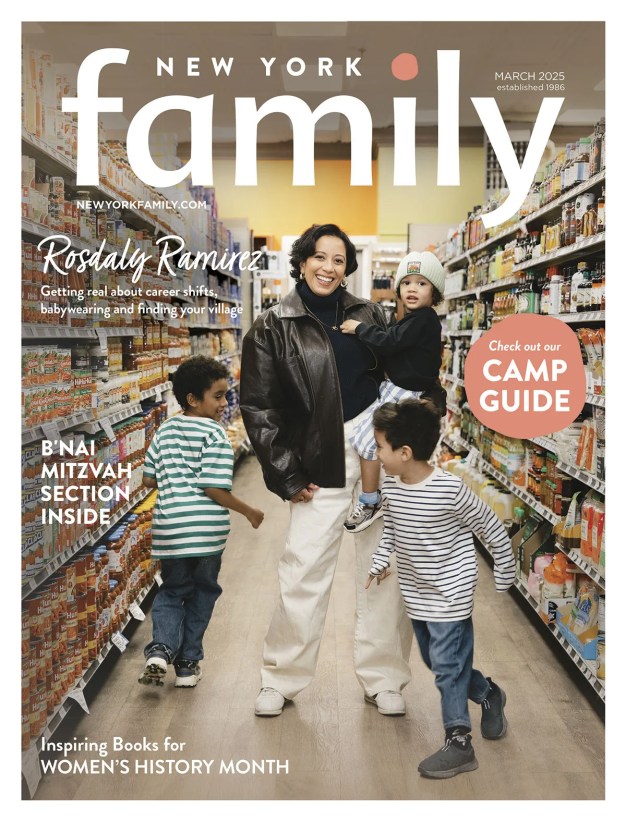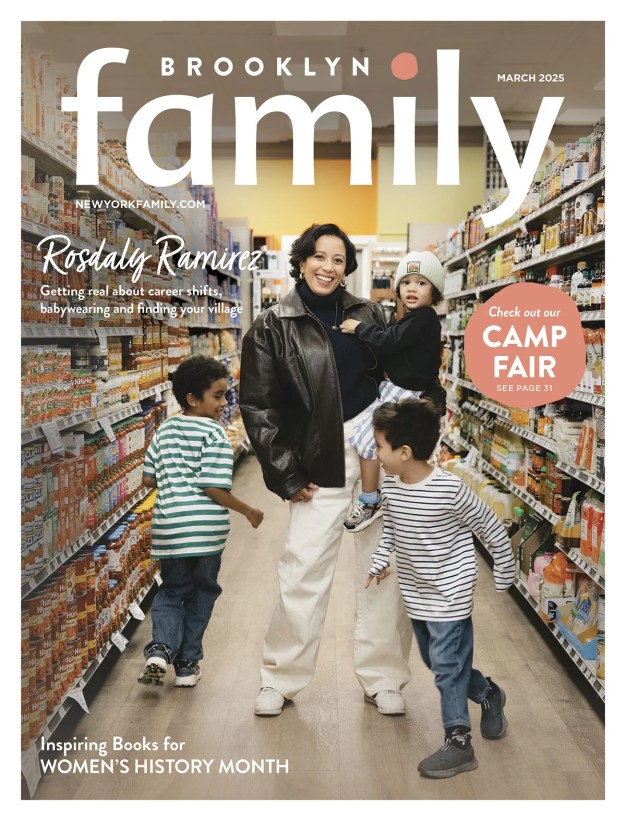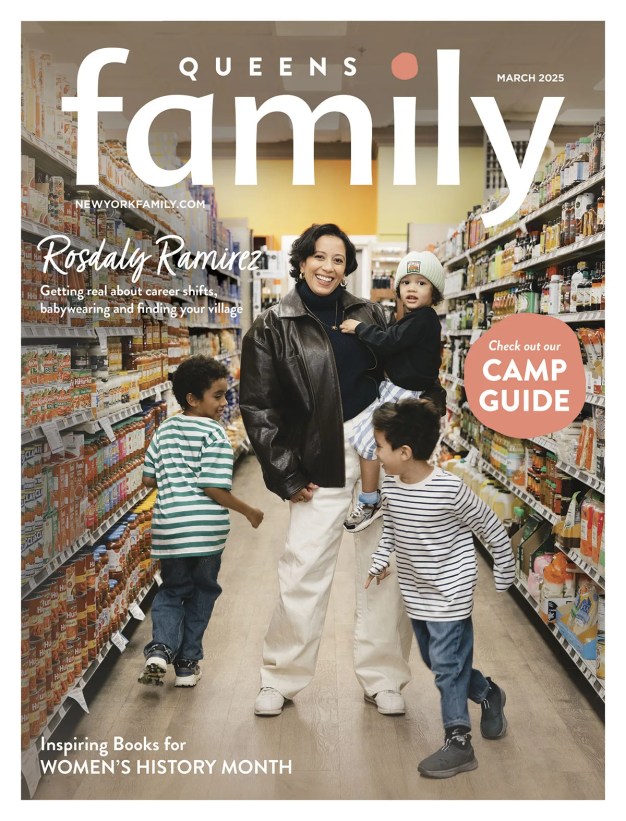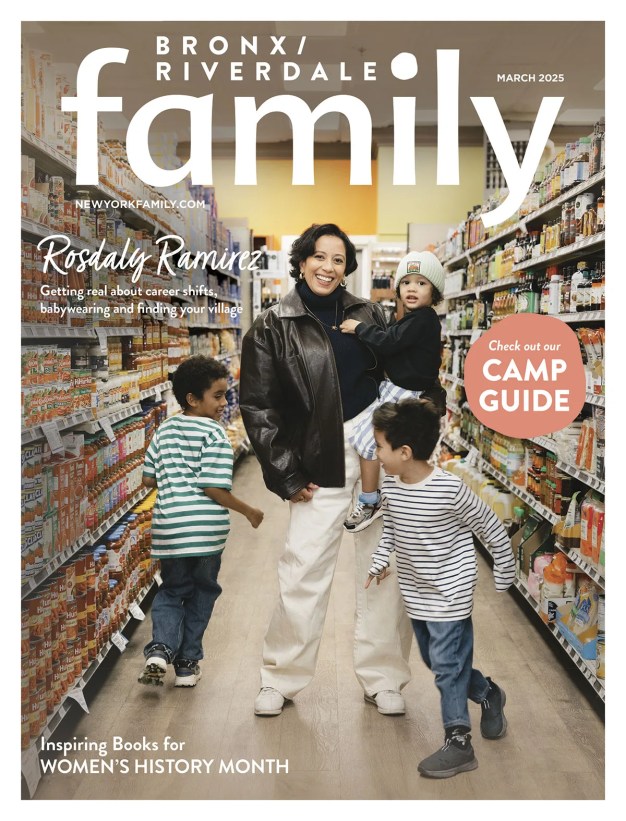It may seem like a stretch to describe a book on raising financially savvy and virtuous kids as a page-turner. But in the realm of parenting books, Ron Lieber has done it. The New York Times personal finance columnist and Brooklyn dad has written The Opposite of Spoiled: Raising Kids Who Are Grounded, Generous and Smart About Money. What makes the book so engaging is that, instead of approaching his subject of money and children as a how-to, Lieber leads readers in a kind of conversation, sharing evidence, anecdotes, and his opinions—much in the style of a Malcolm Gladwell book—while making many persuasive connections between money, values, character, and parenting along the way. But we’ll let him tell you more.
We thought one way to understand the big themes of the book would be to ask you about your word choices in the subtitle—“grounded,” “generous,” and “smart”—why did those words make the cut and not others?
I was thinking: “How can I raise a good kid and model good behavior?” And I was thinking: “What’s the worst thing somebody could say to me about my child?” And the one word that came immediately to mind was the word “spoiled.” Because spoiled is something you do to them. It’s the parents’ fault—maybe that was it. I didn’t want to see myself as a parenting failure. Nobody wants that, no matter how much money they have or don’t have. And I tried to think about [how] to solve for that. What’s the opposite of spoiled? And I realized the opposite of spoiled is this constellation of values, virtues, and character traits. And I made a list of them of them—from generosity to perspective to perseverance to thrift. When I looked at them, I thought that we could use money and conversations about money to get quickly to conversations and family rituals that lead to a deeper understanding and imprinting of these values. Because everybody wants their kids to have good values.
One thing that makes your book fresh is your stance on the allowance. You come down strongly on the side of paying it but not linking it to chores—rather, just using it as a way to teach children about finances.
I think money and work should be separate. I think it’s a good idea for kids to understand that work around the house is just something we do and we shouldn’t expect to be compensated for it, just like parents aren’t compensated. It’s also important for parents to know kids are capable of a lot more than we give them credit for. They can do more, earlier than we think—everything from cooking to shopping and errands. I also think money and allowance can be teaching tools—just like a book or art supplies, just like a musical instrument. It’s something we are using to teach them things—in this case, values, virtues, and character traits: Thrift from the spend jar, patience from the save jar, and generosity from the give jar. With all the jars, we are teaching them about wants, needs, tradeoffs, how much is enough, how much is too much. It’s not connected to things you do, and it’s not connected to things you don’t do. Taking it away should not be a form of punishment.
So then, what do you pay it for? Do you just give it to them?

Yeah. The conversation is: “We’re giving you this money because we think you are old enough to learn to use money wisely. And we want you to learn to make good decisions about what you spend it on, and we want you to learn to wait to save money for things that are really important to you…and to think about trading one thing off for another, and what your highest priority is, and what will bring you the most joy and happiness and utility. We also want you to give money when you can to people who have less than you do or who need it more than you do. There, too, it’s a choice because we can’t help everyone. So we want you to think about what’s most important to you and what’s most important to the world.” But I’m not pounding the table saying: “You’re wrong to do it the other way.” I just ask people to imagine a situation where you’re paying kids to do chores and then they will say to you: “You know what, I don’t need money. I won’t do chores.” And at that point, you’re in a pickle.
The concept of not tying allowance to chores comes as a surprise, to be honest. We’d bet that most parents probably have an instinctual, cultural feeling that allowance should be tied to chores.
I totally get that. There is research that says maybe 15-20 percent of parents don’t tie allowance to chores. Everybody else does, and the worry is: “If I just give them money, won’t I just create entitled kids?” My response is: Not if you frame it in the right way.
Back to the money part: How often should the allowance be paid?
Regularly. That’s the most important thing—that it happens on a schedule, that you don’t forget, that it’s predictable, and kids can count on it… Weekly is good at the beginning. As kids get older, it’s a good idea to make it more infrequent because it gives them the opportunity to budget over longer periods of time. With high school kids, you might even do it once a semester or once a school year. Maybe dump a lump sum in a checking account or onto a prepaid debit card and see how badly they screw it up.
And if they do screw it up, do you bail them out?
There is almost no problem that they can cause with a relatively limited amount of funds that can be so damaging to them that it’s worth bailing them out—or that bailing them out is a better solution than letting then learn the hard lesson.
Of all the seemingly sensible ideas in your book, what has been the hardest part for you to implement as a parent and also for you to write about?
The hardest part was writing about giving kids perspective on how much more they have than other kids in the world, and perhaps most kids in the country, and maybe even most kids in their communities. Even if you have less than average compared to others at your private school or top public school, you’re still privileged. You’re getting a great education. You have teachers who care and you have classmates who are smart and will push you along. While there may be some socioeconomic diversity in those communities, there isn’t a huge range of privilege. We don’t exist in a world to educate one another or to serve as cultural resources, but it is absolutely the case that wealthier people have a ton to learn by hanging out with people who have less, and people who have less have a ton to learn by hanging out with people who have more… One of the best examples came from a sociology professor who specializes in race and social class. She’s a parent who adopted kids who are different races than hers. She chose to put her boys in a little league where many of the kids’ families were recently from the Dominican Republic. And so this was a formative experience not just for her kids, but for her. This was a meaningful relationship. The kids were on a team, and they had been together for many months, if not a couple of years. Families would be sitting on the bleachers for tens of hours. You can’t help but learn a lot about one another’s lives. But there are other ways to do this, too. You can find religious communities that are mixed- class, particularly in urban areas. You can find citywide choruses that are often incredibly diverse economically. And yes, there are many schools that are mixed-class, although kids often self-segregate by social class within the schools. But at the very least, if you have less, you can make an effort to reach out to people who have more and invite them to dinner. Same thing if you are a person who makes more and you have a hunch someone has less, you can invite them over. It has to start somewhere.
You write about kids and jobs. What kind of jobs can kids do in the city?
Babysitting or summer camp jobs, or other seasonal employment like lifeguarding. By all means, parents should encourage their kids to invent their own jobs and do things that other people aren’t doing: Taking care of apartments when people go away for a week, or helping people with their computers, or making things and selling them… The percentage of teens who work has fallen in half over the last 10-15 years nationwide. It’s in large part because grownups are doing jobs that kids used to do. Another school of thought says kids aren’t working as much as they used to because it takes longer to get a driver’s license, or people are more freaked out about college, or people are valuing extracurriculars or GPA over work when they’re thinking about getting into college.
What about parents who say their kid’s job is to do well in school?
I’m not saying every kid should have an afterschool job. That’s not going to be right for everyone. That said, I don’t think you should discourage kids who want to make work their primary extracurricular—if that’s something they’re passionate about, and are passionate about it for the right reasons, not just: “I want to work so I can buy a used BMW when I’m 17.” I think parents should have enough confidence in their kids and enough confidence in the college admissions system, in particular, to realize that showing an aggressive and engaged pursuit of any activity, as long as it doesn’t interfere with their coursework, will be impressive to the people who are evaluating them.
Say you’ve got a 15-year-old and you’re just now reading this book, and you have your “uh-oh” moment. Is it a lost cause?
There’s hard science showing you can turn kids around well into their teens and even afterwards. And the fact of the matter is that you have to. You don’t want to be in a situation where you’re trying to teach them these things remotely when they are off on their gap year, or off in college, or afterward, and they are sort of floundering and confused when real money is at stake. You want them doing it under your roof. Even if you haven’t done this until their senior year of high school, there is plenty they can learn in nine months.
We loved your phrase about parents being in the “adult-making business.”
The point of parenting is to get rid of your kids, and it’s probably better for everyone if they are ready to do that somewhere between the ages of 18-22 than between the ages of 28-32. A really huge part of that is their being able to handle themselves financially. And it’s easier to do that when they’re right here and you can look over their shoulder, than when they are older and off at college or even beyond. Then the question of whether you bail them out actually becomes a question of maybe whether they get evicted or they hurt their credit score. The stakes get higher.
Eric Messinger is the editor of New York Family. Hillary Chura is a reporter and New York Family’s Le$$er Parenting blogger.
To learn more about Ron Lieber and The Opposite of Spoiled, visit ronlieber.com.























